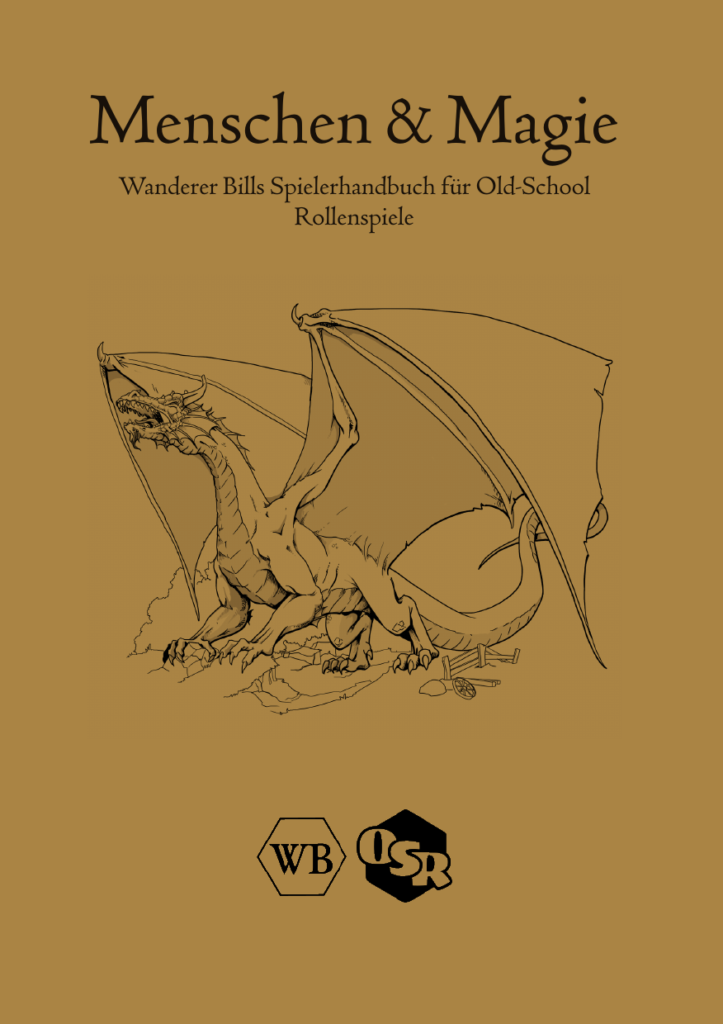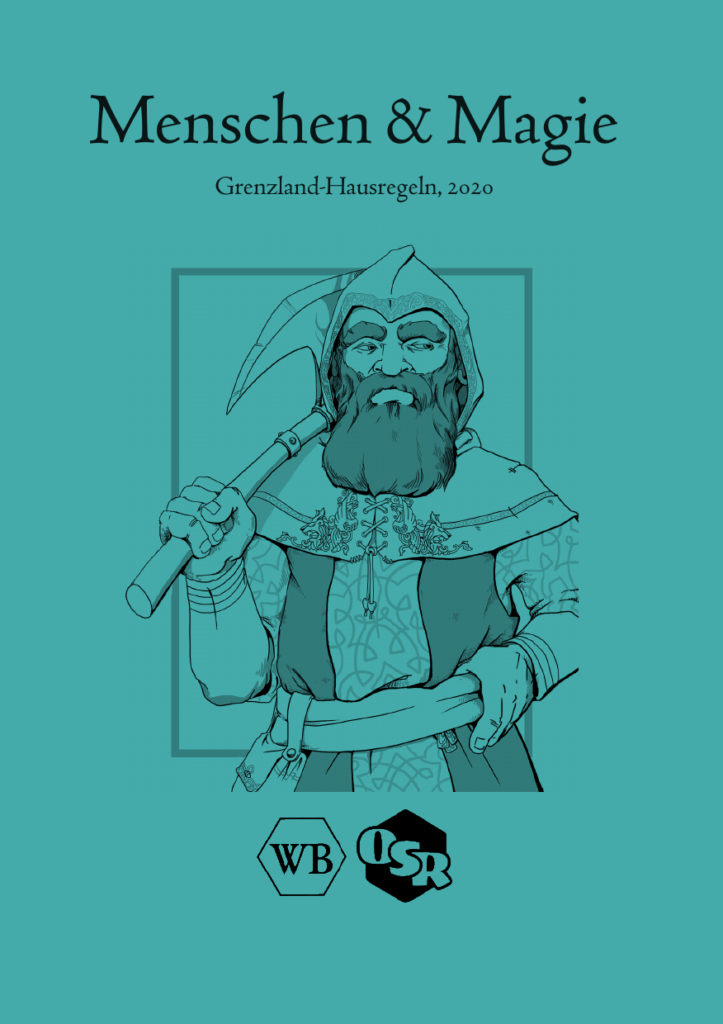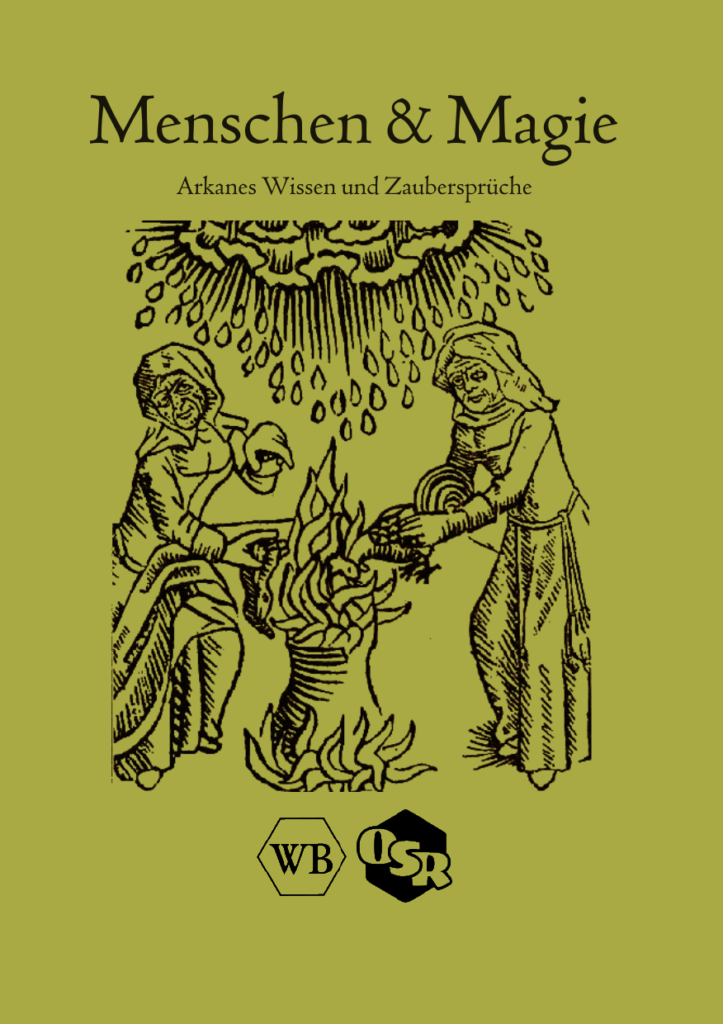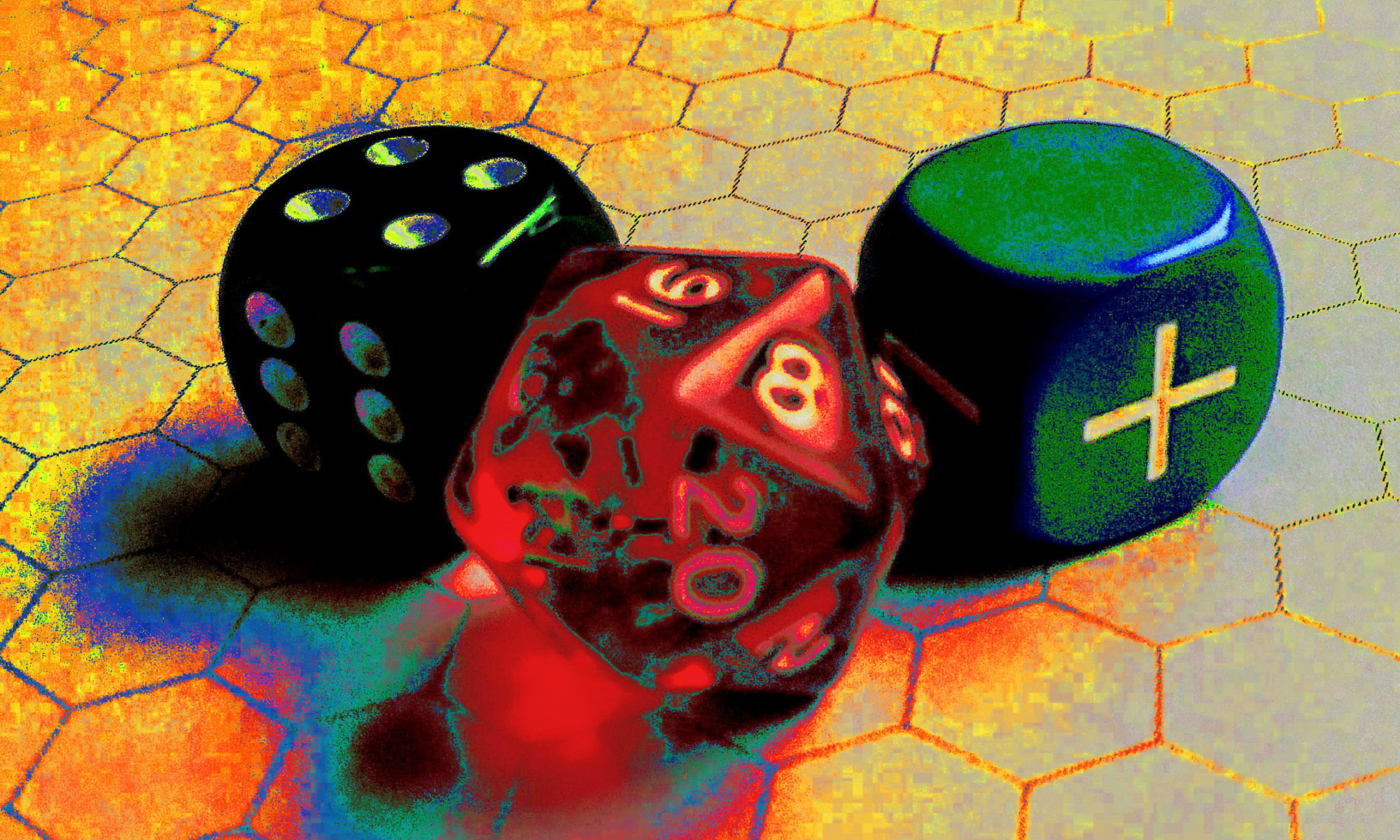Vor fast zwei Jahren, im Januar 2019 habe ich mit meinem Projekt Menschen & Magie begonnen. Es sollte eine Hausregelsammlung für den Spieltisch werden. Gleichzeitig aber sollte es neuen Spielerinnen, die vielleicht noch nie etwas mit Fantasy Rollenspielen zu tun hatten, eine informative Einführung sein, die auch die historischen Aspekte der ersten Rollenspiele in den frühen 1970ern berücksichtigen sollte. Nicht ganz einfach, wie die erste Probeversion zeigte. Ein unvollständiges Konvolut aus Querverweisen, Tabellen und Fußnoten. Mein Nachbar legte die Stirn in Falten und fragte, wer eigentlich die Zielgruppe sei … hm … keine Ahnung …
Aber inzwischen ist das Projekt gereift – und zwar zu drei Bänden:
Menschen & Magie: Wanderer Bills Spielerhandbuch für Old-School Rollenspiele

Das Spielerhandbuch ist nach vie vor das einführende Werk. Es erklärt an Hand einer Charaktererschaffung nach den Regeln der drei braunen Büchlein von 1974 worum es in dem Spiel eigentlich geht, und wie man spielt. Außerdem geht das Spielerhandbuch auf das Spiel in langen Sandbox-Kampagnen ein, was für meinen Geschmack in vielen vergleichbaren Regelbüchern zu kurz kommt.
Als Gimmick enthält das Spielerhandbuch eine deutsche Übersetzung von Necropraxis würfelbaren Ausrüstungstabellen, nochmals Dank an Brendan, dass ich die Tabellen benutzen durfte.
Als der System-Matters Verlag in diesem Sommer den ersten System-Matters Fanzine-Wettbewerb ankündigte war für mich klar, jetzt muss ich mich mal ran halten, und das Projekt über die Rampe bringen. Das Spielerhandbuch wurde mein Beitrag zum Wettbewerb. Es gehörte zwar nicht zu den Gewinnern des Wettbewerbs – die drei Gewinner haben sich völlig zu Recht platziert – aber meine 20 eingeschickten Exemplare waren, wie der Großteil aller eingeschickten Fanzines, nach rund einer Stunde im Online-Shop ausverkauft.
Einen Nachdruck des Spielerhandbuchs, mit etwas schlichteren Ausrüstungstabellen wird es in Kürze als PDF und Print on Demand bei DrivethroughRPG geben.
Menschen & Magie: Grenzland-Hausregeln 2020

Die Hausregeln 2020 sind das eigentliche Referenzwerk für den Spieltisch. Es orientiert sich grob an Swords & Wizardry Core, enthält also auch eine Klasse für Diebe. Außerdem gibt es als Gimmick die Klasse der Punks: eine Unregelmäßigkeit im Ebenengefüge hat sie in die Fantasy-Welt verschlagen. Neben den üblichen Fantasy Halbmenschen Spezies Elfen, Zwergen und Halblingen, gibt es Regeln für Orks, Goblins und ähnliche Humanoide, falls diese als übernommene Nichtspielercharaktere zu Spielercharakteren werden. Und auch die Klasse der Druiden ist berücksichtigt. Allerdings kann man nur im laufenden Spiel zu einem Naturgeweihten werden. Man kann nicht als Druide das Heldenleben beginnen.
Die Grenzland-Hausregeln 2020 gibt es für kleines Geld als PDF und Print on Demand bei DrivethroughRPG!
Menschen & Magie: Arkanes Wissen und Zaubersprüche

Das Buch mit den Zaubersprüchen für alle Stufen. Meine Philosophie als Spielleiter ist ja, dass die Spieler eigentlich nur die Regeln der 1. Charakterstufe brauchen, da die Charaktere ja dann alles weitere im Spiel entdecken – auch neue Fähigkeiten und Zaubersprüche. Andererseits lehrt die Realität am Spieltisch, dass es auch eine Referenz für Zaubersprüche braucht. Ich habe dazu ein unter OGL veröffentlichtes deutsches Regelwerk als Grundlage ausgesucht, und die darin enthaltenen Zaubersprüche überarbeitet und an die Nullte Edition bzw. an Swords & Wizardry angepasst. Im Laufe der Zeit kamen dann auch noch ein paar eigene Sprüche hinzu, zum Beispiel die Gunst der Fortuna, ein Spruch der die Big Purple d30 Rule in Form eines Zauberspruchs ins Spiel bringt.
Arkanes Wissen und Zaubersprüche ist als PDF und Print on Demand bei DrivethroughRPG erhältlich.
Wie geht es weiter?
Drei weitere Bände sind in Arbeit:
Menschen & Magie: Monster und Schätze ein Monsterbuch mit sehr vielen Würfeltabellen, Menschen & Magie: Geheimes Wissen, Wanderer Bills dekonstruktivistisches Spielleiterbuch, welches sich mehr als Werkzeugkasten versteht, indem es nicht nur die ursprünglichen Regeln in seine Einzelteile zerlegt, und die Hausregeln 2021, die auf den aktuellen Hausregeln aufbauen, aber Elemente aus modernen OSR Regelwerken wie White Hack und Into the Odd enthalten.
Außerdem ist und bleibt Menschen & Magie ein Open Source-Projekt! Die Quelldateien sind frei auf Github verfügbar. Jeder kann sich dort den Versionsverlauf anschauen, von der ersten Stümperversion, über Fehltritte bis hin zum aktuellen Stand der Dinge. Dort kann man also auch sehen, wie Wanderer Bill mit dem Monsterbuch und dem geheimen Spielleiterwissen voran kommt.
Da Menschen & Magie quelloffen ist, steht es natürlich auch jedem frei, sich seine eigene Version von Menschen & Magie zu basteln. Für die Einhaltung der Lizenzbedingungen solcher Derivate legt Wanderer Bill aber natürlich nicht seine Hand ins Feuer.
